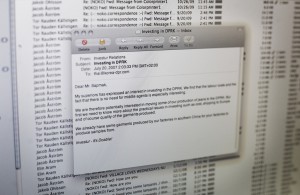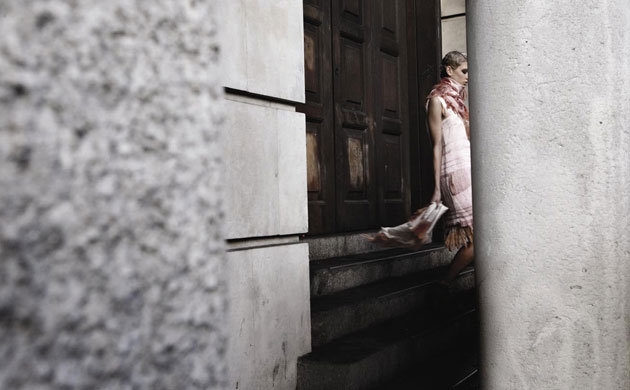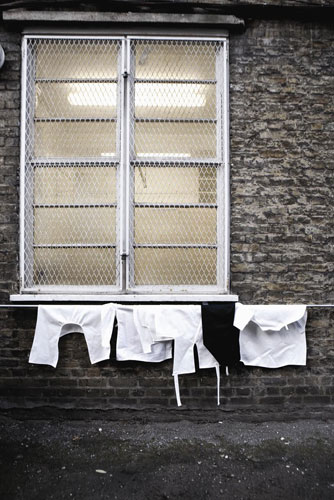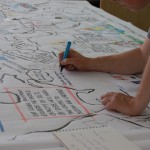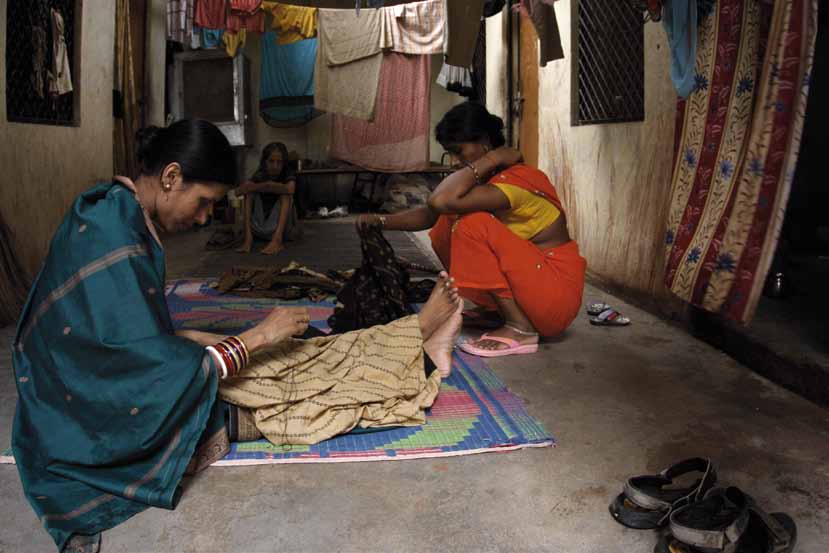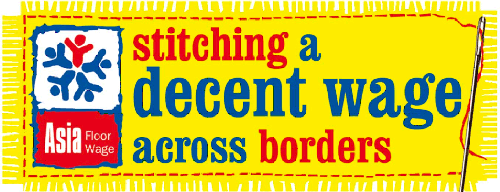Let’s Clean up Fashion 2009: The State of Pay Behind the UK High Street reports a disconnect between the what’s happening in the boardrooms, the development of corporate social responsibility (CSR) policies and procedures, and what is actually happening on the ground.
“Wages are low because they are kept that way through a global competition that engages workers, factories and whole countries in a race to the bottom – A race where the winners are those that can produce as quickly, cheaply and flexibly as possible” (LCUF, 2009 Report: 2)
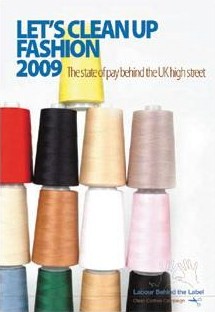
According to Fashioning an Ethical Industry (FEI), this year’s guide is not only relevant to high street retailers, but should also be of interest to both fashion design students and tutors, “with indepth company case studies that can be incorporated into university projects or teaching.” (FEI)
“The scandalous truth is that the majority of workers in the global fashion industry rarely earn more than two dollars a day, in an industry worth over 36 billion a year in the UK alone.” (LCUF, 2009 Report: 2)
In this year’s report, Let’s Clean Up Fashion (LCUF) has claimed that “[n]o brand or retailer is paying its workers a living wage, or has yet put together a systematic programme of work that is likely to raise wages to acceptable levels in the near future.” (LCUF, 2009 Report: 3) In 2008, LCUF argued there are “four pillars that underlie a meaningful living wage initiative: using a collaborative approach by working with other companies, trade unions and labour rights groups; supporting worker organising and participation; addressing commercial factors throughout the supply chain and creating a clear road map to implementing the living wage for all workers.” (LCUF, 2009 Report: 4)
The 2009 report lists high street companies who have lost the plot when it comes to basic human rights in the workforce, and presents in depth case studies of each, citing where and why they have fallen short, with comments on what they need to improve. Here is the list of companies included in the report:
Alexon, BHS, Ethel Austin, House of Fraser, Peacock Group, Asda/George, Clarks, Debenhams, French Connection, John Lewis, Laura Ashley, Levi Strauss & Co, Matalan, River Island, Sainsbury’s, Arcadia Group, Aurora Fashions, Burberry, Tesco, Gap, Marks & Spencer (M&S), Monsoon Accessorize, New Look, Next, and Primark.
Click here to read the report online, and here to download the full report in PDF.
Labour Behind the Label has been reporting on these issues since 2006. Click here for previous reports.
Labour Behind the Label. (2006 – 9) Lets clean up fashion: The state of pay behind the UK high street, Bristol: Labour Behind the Label.
Source: FEI and LCUP


